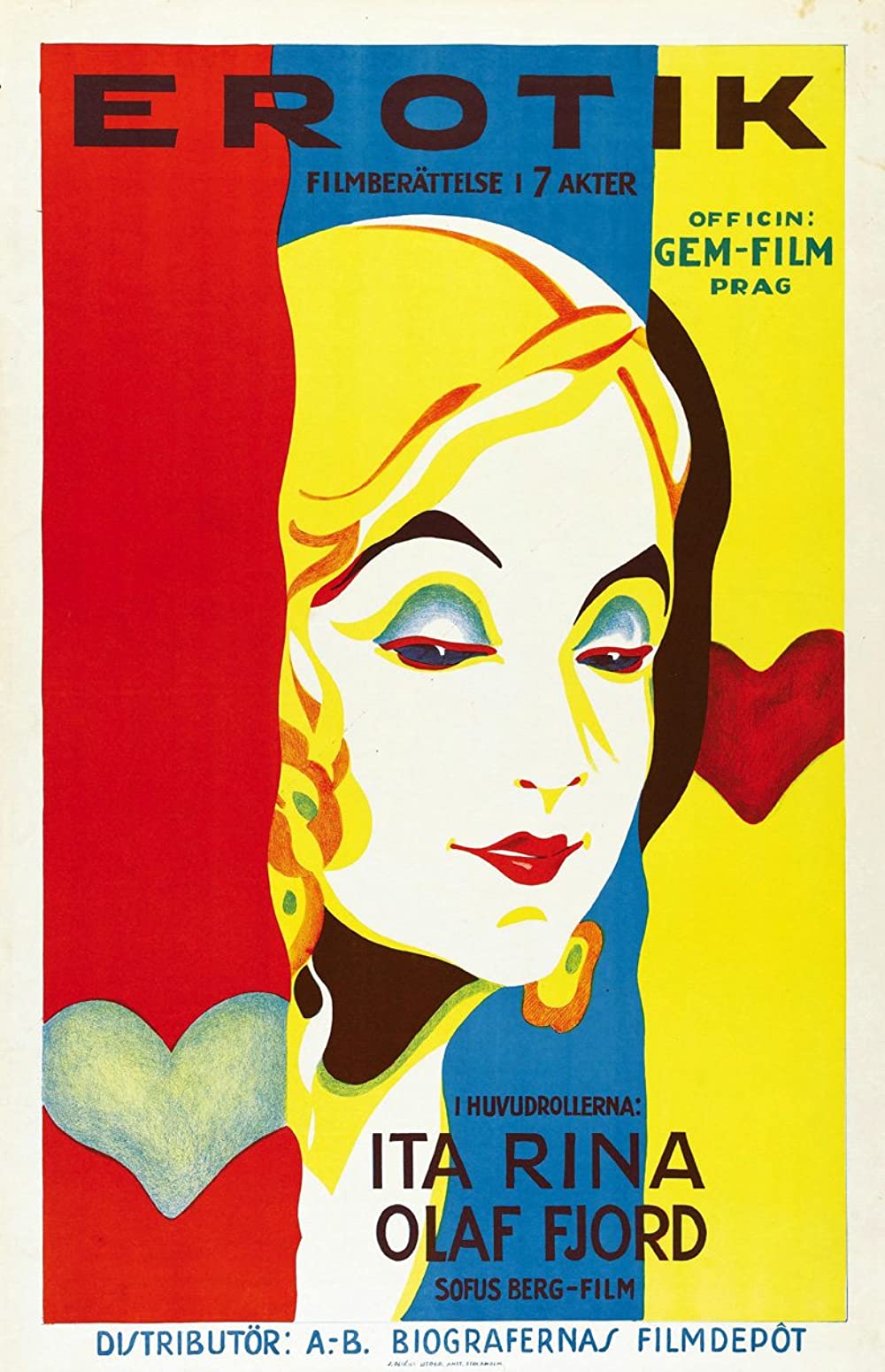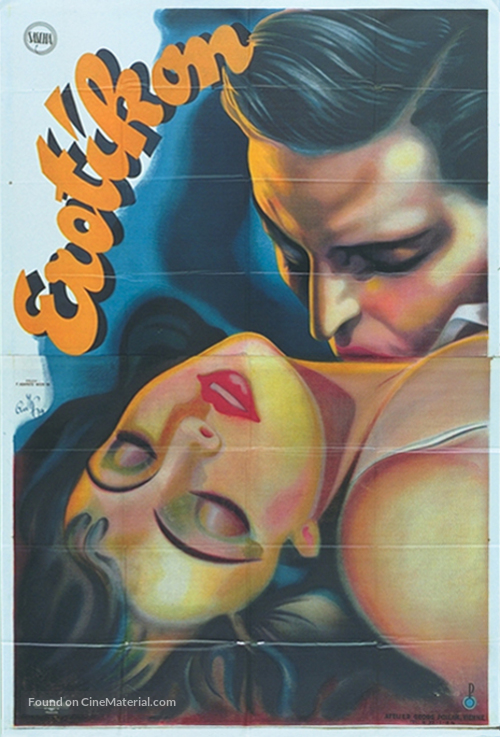
More than once, I’ve heard in silent film circles: “If only the practical problems of talking pictures had been solved in 1930 instead of 1927. Why? Because the great era of silent film really started in the late 20s, and if the talking pictures didn’t get going until the 1930s we’d have had three more years of great silent films to enjoy.”
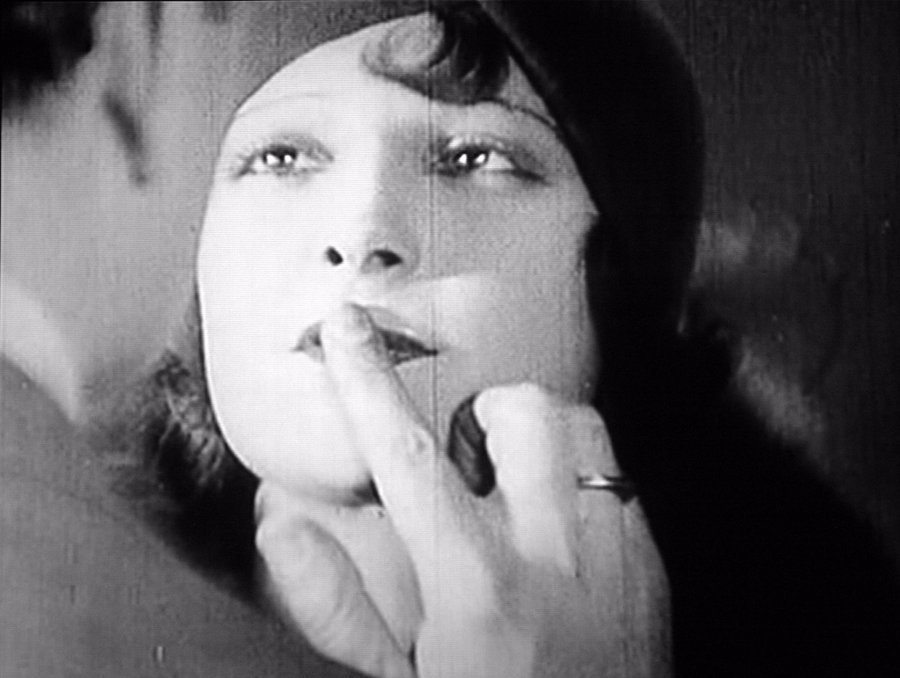
I agree that silent film really had reached some kind of artistic zenith in the late 20s, and a film that illustrates this point is the Czech melodrama, Erotikon, directed by Gustav Machatý, who is perhaps better known for his 1933 film Ecstasy, (which includes nude scenes of a young Hedy Lamarr). The director’s Ecstasy has its moments, but his earlier, Erotikon is a better film, and is a great example of how “complete” the art of silent film had become just before the dawn of sound.
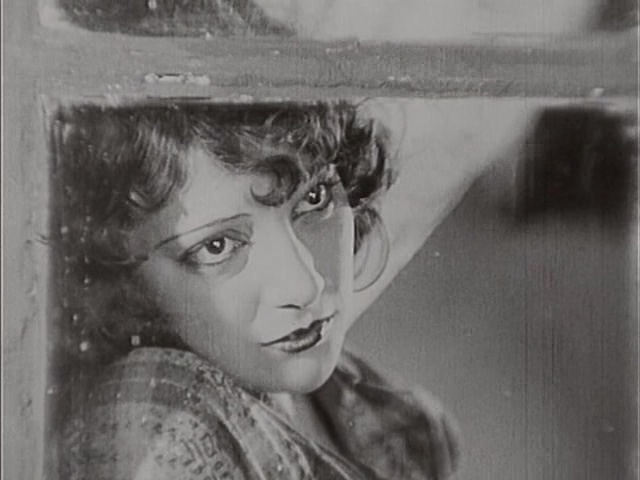
Watching the opening shots of Erotikon is like watching a master class of all the techniques available to tell a story in a silent film medium – on a dark, stormy night, George, a young man who has missed the last train, is befriended by a railway gatekeeper who invites him to his house. After taking gifts from George, the railway worker becomes incautious that his beautiful young daughter Andrea (played by a luminous Ita Rina), will be alone in the house – all these plot points are told with a brisk clarity, yet also with great lyricism.
So a railway worker’s daughter is left alone with a handsome young man on a rainy night, but those expecting a movie titled Ecstasy to be soon full of titillating shots of sexual gratification will be soon disappointed. Instead, the story pursues a stylized, poetic path to describing the emotions of the couple. As Andrea considers the situation of being left alone with this man, raindrops on the window form patterns on her face suggesting her inner turmoil. And behind this melancholy but emotionally charged mood is the irony of the situation itself. For example, Erotikon, is not the state of mind of the characters, but instead is the name of a cologne owned by the young man.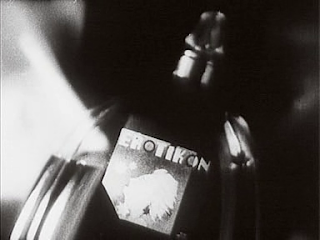

The storm rages on, the callow youth seduces the daughter, and leaves without a second thought on the next morning train. The daughter finds herself pregnant and leaves home, while the young man on his own paths, embarks on his life of affairs in the big city. In a series of events in which time and location shift rapidly–as in a dream–the child is stillborn. Andrea soon finds herself on the streets, where she is attacked by the driver of a wagon who has offered her a ride. Into this desperate scene comes Jean (Luigi Serventi). Driving a car, he seeing the fight and comes to her aid.
The two men fight, and the wagon driver is knocked unconscious but not before stabbing Jean in the chest. Getting Andrea in his car, she tells him to drive away, and then Jean proves his mettle by asking which way to go, explaining: “Weren’t you heading the opposite direction?”
That response, my friends, shows someone who is a truly marriageable material – a man who helps a complete stranger, (basically saving her life), receives an injury, and yet has enough gentleman left in him to take her where she needs to go. But then he puts his hand on his chest and sees blood oozing out of his wound…
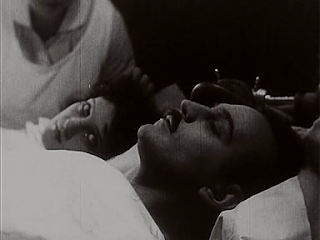
Minutes later, they are in the hospital and it is time for Andrea to repay the favor – Jean needs an operation, and needs a transfusion to live – she offers her blood if the right type, and minutes later she is next to him it is flowing from her veins to his. Yes, a blood transfusion in the operating room, becomes the hugely romantic moment in this film, a film named after a rich man’s cologne.
So Andrea saves his life after Jean has saved hers, but this event is only a prelude to further romantic complications, ones so thick with irony and lust that we have the sense we may have wandered our way into a Tolstoy novel, Andrea has now experienced two kinds of love from two different men and when George meets her again, she is attracted to both of them. But just as the story is in danger of becoming a standard two-suitor romance, Eroticon expands into a complicated field of attractions among all the characters.
Topping off this wonderful film is a ending that ties off all the loose ends, and we have a movie that has plot + beautiful imagery + great acting. What more could you want from a silent film?

